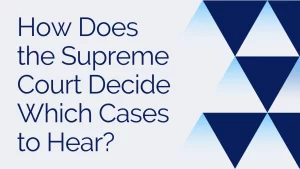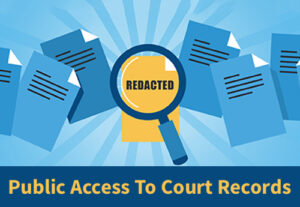What is an Evidentiary Hearing in Family Court?
Family court handles a wide range of issues related to family legal matters such as divorce, child custody, child support, and more. During the course of a family court case, there may be disputes or conflicting information that require further examination before a judge can make a ruling. This is when the court may hold an evidentiary hearing.
Understanding Evidentiary Hearings
An evidentiary hearing is a legal proceeding held before a judge to allow parties to present evidence and resolve factual disputes related to the case. It provides an opportunity for both parties to call witnesses, submit documents and records, and give testimony relevant to the disputed issues under consideration.
The evidence and information presented during the hearing allows the judge to gain a clearer understanding of the facts needed to make a ruling consistent with the law and in the interests of justice. Evidentiary hearings are a key component of due process in the court system.
Purpose of Evidentiary Hearings
There are several reasons why a family court may hold an evidentiary hearing:
To Resolve Factual Disputes
If there are significant factual disagreements between the parties in a case, the judge will need to determine what actually happened before deciding how to apply the law. An evidentiary hearing allows each side to present their evidence and version of events in dispute.
For example, in a child custody case there could be conflicting accounts about one parent’s parenting skills and involvement with the child. An evidentiary hearing would allow witnesses and documentation to provide clarity on the disputed facts.
To Weigh Evidence
Judges must also consider the strength, reliability, and relevance of the evidence presented. Not all evidence holds the same weight, so the evidentiary hearing provides an opportunity for the judge to directly see and hear the evidence in order to evaluate it appropriately.
Credibility of witnesses can also be assessed during the back-and-forth of direct examination and cross-examination during the proceedings.
To Decide Motions
Certain motions filed by parties during litigation, such as a motion to compel discovery or modify support payments, may require an evidentiary hearing to settle the matter. Each side will have the chance to argue their position and justification for the motion being granted or denied by the court.
When Evidentiary Hearings Are Used
While not all family court matters require a formal evidentiary hearing, they are commonly used in certain types of cases, such as:
- Child custody disputes
- Modifications to child support or alimony
- Contested divorce proceedings
- Requests for restraining orders or protective orders
- Allegations of domestic violence, child abuse, or parental neglect
The hearing may be limited to certain aspects of the case that pertain to the disputes at hand and require additional fact-finding by the judge.
How Evidentiary Hearings Work
If the court determines that an evidentiary hearing is needed, the parties will be notified of the date, time, and location of the hearing through an order by the judge. The process typically includes the following:
1. Opening Statements
Each side has the opportunity to provide an opening statement that summarizes the issues in dispute and previews the key evidence they will present. This helps frame the scope of the hearing for the judge.
2. Presenting Evidence
The petitioner/plaintiff in the case will proceed first with presenting evidence through witness testimony and documents. Any witnesses are subject to cross-examination by the other party. Then the respondent/defendant will have the opportunity to present their own evidence, followed by cross-examination.
3. Closing Arguments
Once all evidence is presented, each side makes a closing argument to summarize their position and important points for the judge to consider in making a ruling. The petitioner goes first, followed by the respondent.
4. Issuing a Ruling
In some cases, the judge may issue a decision immediately after closing arguments if they feel prepared to make a ruling. Other times, the judge may take time to thoroughly review the evidence before providing a final judgment on the disputed matters.
Types of Evidence in Family Court Hearings
Many forms of evidence may be presented and examined during an evidentiary hearing, such as:
- Testimony – Statements provided under oath by parties or witnesses to the case, either verbally in court or via sworn deposition if allowed.
- Records – Financial statements, communication records, medical reports, school records, and other documents relevant to the issues in dispute.
- Pictures – Photos depicting injuries, living conditions inside a home, or other visual evidence.
- Electronic evidence – Voicemails, texts, social media posts, and other digital communications.
- Physical evidence – Items directly related to the case, such as weapons, damaged property, etc.
Questioning Witnesses in Evidentiary Hearings
Witness testimony is often a key source of evidence in family court hearings. All witnesses face direct examination by the side that calls them, followed by cross-examination by the opposing party.
Judges typically allow wide latitude in questioning witnesses to shed light on disputed facts, but may limit or exclude irrelevant questioning. Hearsay evidence – secondhand statements not directly heard by the witness – is also generally inadmissible during the proceedings.
Experts such as doctors, psychologists, or financial analysts may provide testimony related to their evaluations and opinions on issues in dispute as well. However, the judge determines whether to qualify a witness as an expert.
Why Are Evidentiary Hearings Important?
Evidentiary hearings serve an important role in ensuring due process and just outcomes in family court. Key reasons why they are a vital component in many cases include:
- Allow parties to present their side and evidence directly to the judge.
- Enable the judge to make informed rulings based on the established facts of the case.
- Provide a chance for parties, witnesses, and lawyers to address disputed issues through testimony and questioning.
- Allow a written record of the proceedings to be made through transcripts and evidence submission.
- Give parties confidence they had a full, fair hearing before the court.
By holding evidentiary hearings, family court judges can make judicial determinations related to divorce, child custody, support and other critical family issues based on the merits and evidence rather than just arguments or filings alone. This upholds each individual’s right to due process under the law.
Evidentiary hearings ultimately promote justice in family law cases where two sides may genuinely disagree over factual issues that must be resolved to move forward. While they require time and resources, thorough evidence-based proceedings lead to greater accuracy in rulings and better adherence to the law.
Preparing for an Evidentiary Hearing
Going through an evidentiary hearing can be a stressful and emotional experience for parties in family court cases. Being prepared helps ensure the process goes smoothly and parties have the chance to present their case fairly and accurately. Steps for preparing include:
Gather Documents and Records
Compile all documentation that supports your side of disputed issues, such as financial statements, communications between parties, medical evaluations, police reports, and anything else relevant to the case. Have multiple copies ready to distribute in court if allowed.
Line Up Witnesses
Contact any witnesses who can testify firsthand to the facts and events related to the dispute. Get their commitment to appear and testimony they can provide. Make sure they know the hearing date, time, and location.
Know Rules of Evidence
Understand the basic evidentiary rules in your jurisdiction so evidence presented aligns with established standards. Hearsay, unsupported opinions, and irrelevant facts may be prohibited or limited.
Confer with Your Lawyer
Discuss the hearing process and expectations with your attorney. Make sure you understand the strategy for presenting your side effectively. Listen to their guidance in selecting the best witnesses and evidence to offer.
Practice Testifying
Practice answering potential questions you may face during testimony calmly, honestly, and thoroughly. Avoid guessing or speculating when unsure of details. Tell the truth.
Organize Exhibits
Have all documents labeled clearly and logically so they can be identified and referenced easily during the hearing. Keep originals safe from damage or loss.
Thorough preparation and an in-depth understanding of the evidentiary hearing process will enable you to present your case in the best possible light and help achieve the most favorable outcome under the circumstances.
What Happens After the Hearing?
Once all evidence is presented and the hearing concludes, one of two outcomes will occur:
Immediate Ruling
If the issues are relatively straight forward or the judge feels prepared, they may make a verbal ruling on the disputed matters immediately after closing arguments. This oral judgment on the record will then be enforceable pending the final written order.
Written Order Issued Later
For more complex cases, the presiding judge may take time to thoroughly review evidence and records before making final decisions on disputed facts and claims. The court will later issue a detailed written order with rulings on each aspect of the case. This final judgment can be appealed by either party.
Court orders decided after a hearing generally cannot be re-litigated or disputed with new evidence. There are certain exceptions, such as proof of fraud or perjury during the proceedings. But in most instances the evidentiary hearing produces a binding resolution subject only to appeal.
Key Takeaways
- Evidentiary hearings allow parties to fully present evidence on disputed issues for a judge to resolve factual discrepancies in a case.
- Family courts commonly use them for issues like child custody, support modification, and domestic abuse allegations that require additional fact-finding before ruling.
- Effective preparation, adhering to evidentiary rules, and working closely with legal counsel helps parties navigate the hearing process.
- The judge’s ruling produces a resolution on disputed facts that typically cannot be re-opened later with new evidence except in limited circumstances.
- Thorough evidentiary hearings uphold due process rights and produce well-supported rulings, even if disappointing to one party.
Evidentiary hearings play a critical role in contested family law cases by enabling in-depth examination of evidence on disputed issues so judges can make fully informed rulings consistent with the law and facts. Though the process can be difficult for parties personally, preserving due process and factual accuracy serves the interests of justice.
Frequently Asked Questions
Do both parties have to agree to an evidentiary hearing?
No, either party can request an evidentiary hearing and the judge can order one even if only one party wants it. The court may decide it is warranted based on the issues in dispute.
Can new evidence be presented after the evidentiary hearing concludes?
Typically no. The hearing is intended to cover all relevant evidence. New evidence after the fact is usually prohibited except in extreme circumstances showing perjury or fraud affected the outcome.
Is a lawyer required for an evidentiary hearing?
While not legally required, having legal counsel experienced with evidentiary rules and family court is highly recommended. Most parties benefit from attorney representation navigating the hearing process.
What happens if you miss or walk out of an evidentiary hearing?
The hearing will typically proceed without you and may result in rulings against your interests. Judges can hold parties in contempt if they intentionally skip out on hearings.
Can evidentiary hearings be open to the public?
Family court hearings are usually closed to the public, but in some jurisdictions they may be open depending on the policies. The judge can also order certain sensitive cases to be sealed or closed at their discretion.






